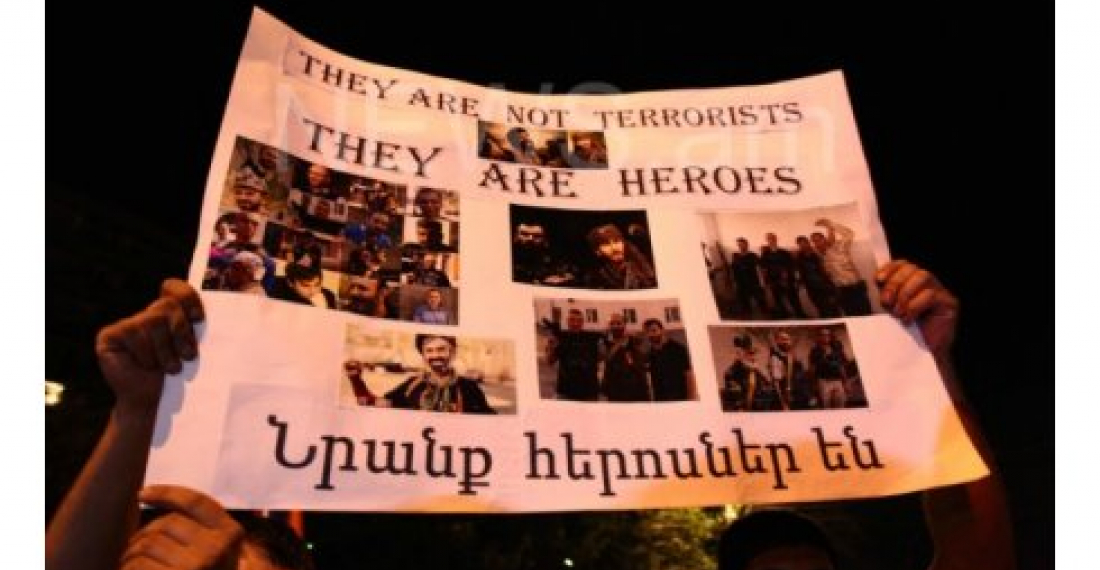There were chaotic scenes in the Armenian capital Yerevan after an exchange of fire between police and members of the armed group currently under siege at Erebuni police station. A statement for the group Sansa Tsrer said that “the police attacked the building; Pavel Manukyan, Aram Manukyan, Gevorg Iritsyan and probably other members of the group have been wounded. The police have taken Pavel, Aram, Gagik Yeghiazaryan and one more member of the group.” Later it was reported that Pavel Manukyan and his son Aram where seriously injured and had been operated on in a nearby hospital.
The shootings took place as a crowd of around five thousand people demonstrated in Yerevan in solidarity with the group. People shouted and some cried as news of the injuries emerged. The crowd was by far the largest that had gathered since the crisis started on 17 July. There was a heavy police presence on the streets. No serous incidents were reported however and the crowd dispersed in the early hours of the morning, promising to reconvene.
Earlier the Armenian Security Services issued a statement saying that they will be proceeding more assertively to resolve the Erebuni situation since the behaviour of the armed group was threatening public safety and security.
In an interview on the website tert.am, Armenian political analyst Hayk Martirossian blamed the current crisis on the authorities and on the failures in the Armenian political system Martirossian said in his interview "the political scene is exhausted, discredited and destroyed. What we see in Armenia is, as a matter of fact, the Communist-style one party model." You can read Hayk Martirossian's interview in full on tert.am here
Commonspace.eu political editor said in a comment: "The Armenian government, it seems, now wants to bring this crisis to a swift conclusion, even if that requires use of force. Up to now the ongoings in Erebuni were limited to a handful of armed men and a few hundred supporters, but the fact that the crowds now protesting against the government are in their thousands is an important game changer, which the government cannot ignore. The authorities understand that so far those protesting have not had a united leadership, but if this changes and leaders emerge from the group, then the situation can become dangerous very quickly. Many qustions remain unanswered regarding the motives of Sansa Tsrer, who, if anyone, is behind them, the connection of the incidents in Yerevan to the Karabakh peace process, and the long term consequences on Armenian politics. But what everyone seems to agree is that the government can no longer dismiss the Erebuni incident as an inconvenience. Once the stand-off is resolved, probably through force and in the next days, the government will have to ask itself bigger questions about its whole strategy. It must, because it seems that large chunks of Armenian society are now demanding this.
source: commonspace.eu
photo: A demonstrator expresses support for the armed men under siege in Erebuni (picture courtesy of news.am.







